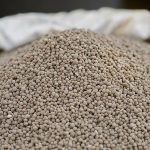
Tag Archives cover crops
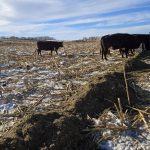
Winter grazing strategies offer cost relief for Manitoba cattle producer
With proper testing and balancing, cover crops, straw and silage can reduce winter feed costs
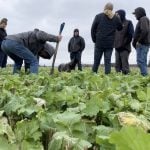
VIDEO: Drone seeding aids cover crop planting
Manitoba cover crop trials this summer tested drone seeding against a traditional drill; with promising biomass results

Nuffield journey shapes Manitoba farm, years later
Clayton Robins travelled across the world on a Nuffield scholarship over a decade ago; it profoundly impacted how he now farms in western Manitoba
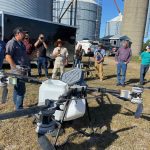
Drones jumpstart cover crop planting
The first of a three-year project has found more biomass from earlier drone broadcasting of seed
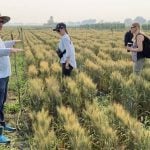
VIDEO: Yield-eating weeds and pest insects tackled at field day
The University of Manitoba put the spotlight on its in-progress crop research, including the concept of a nurse crop against flea beetles, corn weed control and high-protein canola fertilizer

Plant tissue tests key to maximize crop health and yield, Canadian experts say
Regular tissue analysis helps farmers detect nutrient deficiencies early, optimize fertilizer use and improve overall crop performance

Introducing the speakers for Manitoba’s 2025 Regenerative Agriculture Conference
Get a sneak peek of the 2025 Regenerative Agriculture Conference lineup in Brandon this fall, organized by the Manitoba Forage and Grassland Association

Industry wrestles with regenerative certification
Canada needs flexible, farmer-driven standards to guide regenerative agriculture, experts say

Cover crops can pad the pocket in the long run
Healthy soil and cover crops can reduce nitrogen fertilizer use, says Ontario soil scientist

Past lessons have a role for farming futures
Old ideas shouldn’t necessarily be discounted when looking at the future of Canadian agriculture




